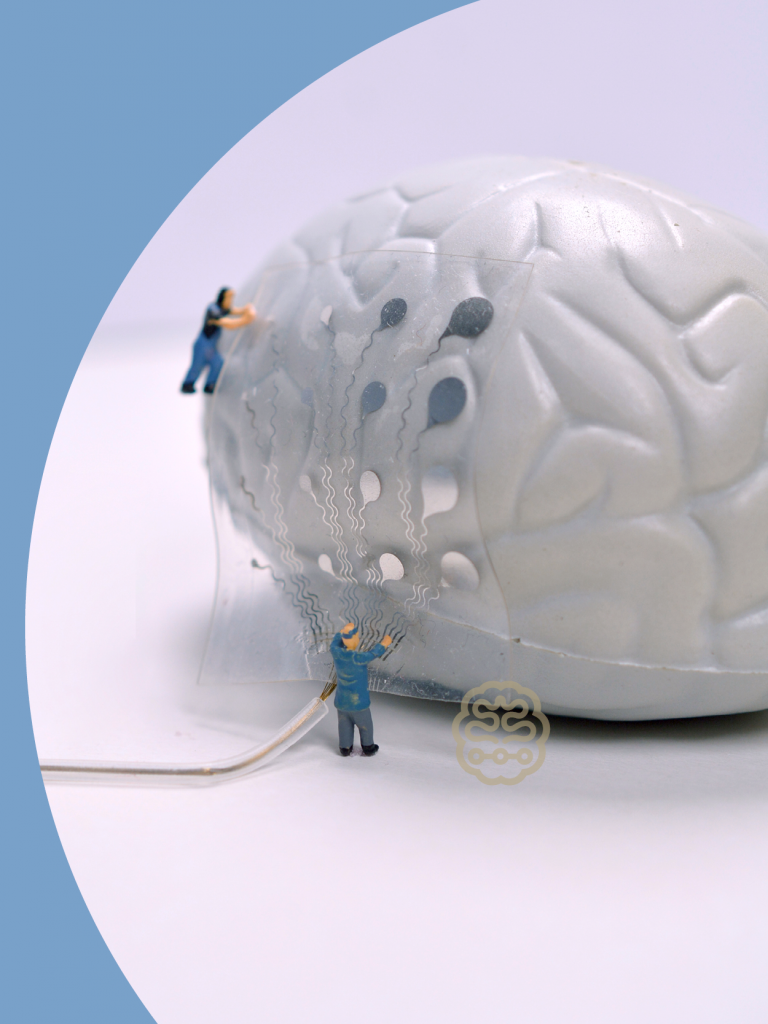CorTec is part of an international clinical study that will enable severely paralyzed people to communicate again – with the help of an implantable brain-computer interface.
It is a vision that has been at the core of CorTec’s DNA since its inception more than 10 years ago by now: Brain-Computer Interfaces (BCI) that enable severely paralyzed people to communicate again – by recording brain signals with neurotechnological implants and deciphering their meaning with intelligent algorithms.
This dream is now about to finally come true – with the help of funding by the European Commission in the EIC Pathfinder program and the Swiss Secretariate for Education, Research and Innovation, amounting to almost 6 million Euro. In the project, CorTec has teamed up with European scientists that have been spearheading the BCI movement: Dr. Nick Ramsey from the University Medical Center in Utrecht, the Netherlands, who coordinates the project, and Dr. Gernot Müller-Putz from Graz University of Technology in Austria. CorTec will develop and provide the implantable hardware that will pick up the brain signals: customized high-resolution ECoG electrodes with high-channel cabling and novel implantable connectors. The Swiss Wyss Center for Bio- and Neuroengineering will develop and provide a revolutionary implantable electronics system based on their ABILITY system that will process the data and transmit them wirelessly to external computers for analysis and decoding.
The project’s idea is to combine decoding of both speech and hand movement signals from the human sensorimotor areas to enable direct brain-controlled spelling and eventually speech. This combination is worldwide unique. It will provide patients for the first time with a complete and easy-to use communication system that will allow them to communicate and control a computer cursor. The approach is to be implemented for the first time in two patients who are “locked-in”, having lost their ability to move and speak due to a fatal disease like ALS.
For this ambitious plan, the researchers are building on extensive previous work that showed that the individual components can work:
“As a first step to enable the patients to interact with the system, we will set up the decoding for mouse clicks and cursor control from intended movements, which we have shown to be feasible in previous research”, explains Dr. Müller-Putz. In addition, Dr. Ramsey’s group is developing a way to decode language from brain signals: “We are assessing the person’s attempt to produce the phonemes that make up a spoken word. In this way, we can read out from brain signals in real time what the patient wants to say. For that purpose, it is essential to be able to pick up very fine-grained brain signals, which can only be achieved with the high-quality high- resolution CorTec AirRay™ electrodes, in combination with the WYSS center’s innovative ABILITY system. Together, they will allow to stream the huge amount of data wirelessly to external processing units that will evaluate the brain signals in real time.”
Dr. Tracy Laabs, who is responsible for the Wyss Center’ contribution, is excited. “After several years of prototype developments, this project will allow us to make the crucial final development steps that will bring our system to the patient”.
It is important to the researchers to come up with a solution that not only works in artificial lab environments, but also at home and without the support of technical experts. To that end, the new system needs to be easy to use and robust, while using the latest AI-based and self-learning technologies. If successful, this would be the first BCI that is ready for everyday use, making a huge practical difference for patients, caregivers and health care professionals.
“This project will be a real breakthrough in bringing Brain-Computer Interfaces to clinical practice. We at CorTec are honored and proud to be part of this endeavor”, says Dr. Martin Schüttler, CorTec’s CTO.
References:
Grant:
EU Pathfinder program: https://eic.ec.europa.eu/eic-funding-opportunities/calls-proposals/eic-pathfinder-challenge-tools-measure-and-stimulate-activity-brain-tissue_en
Press release by the UMC Utrecht: https://www.umcutrecht.nl/nieuws/brain-computer-interfaces-voor-verlamde-mensen?lang=en
Links to the Project Partners:
https://www.tugraz.at/institute/ine/research/team-mueller-putz/
